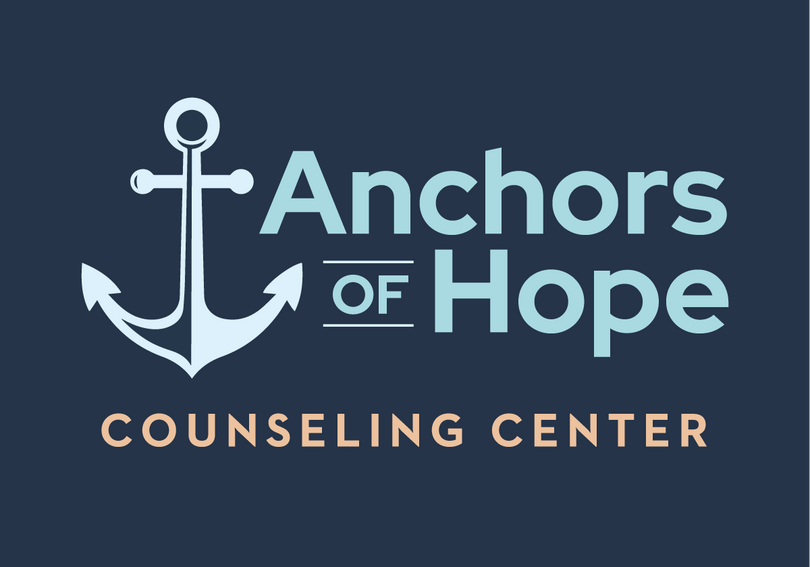
Anchors of Hope Counseling Center
Located in Charleston, SC, Anchors of Hope Counseling Center is a collection of therapists who have come together with a shared vision for supporting the mental health needs of families, couples, and individuals in the Lowcountry. While our counseling center is new, our experienced therapists bring their clinical expertise, forged through years of training and counseling experience, and combine it with a passion for promoting the flourishing of all who come through our doors.
Therapists
Staff

Jaquie Atkins
Licensed Professional Counselor and Co-Owner
Jacquie is a licensed professional counselor who holds a Master of Science degree in Clinical Mental Health Counseling – Psychology and a Bachelor of Science degree in Human Services, both from Evangel University in Springfield, MO.Jacquie specializes in attachment-based work with teens, families, individuals, and couples.Jacquie began her clinical work in 2013 working with children within the foster system. During this time, she was honored to provide support and guidance to foster children, their birth parents, and their foster families. In walking alongside children and their biological and foster families, Jacquie saw the deep impact that trauma has on families. At the same time, she got to witness firsthand how facilitating healthy attachments for children, teens, and adults could bring significant healing into individuals and family-systems.In October of 2020, Jacquie began pursuing advanced training in Emotionally Focused Therapy (EFT). Jacquie utilizes EFT and other evidence-based approaches to help families grow closer together and heal from trauma.Jacquie is a wife and mother of two adult sons. In her spare time she enjoys traveling, reading and learning.

Carol Conway
Licensed Independent Social Worker - Clinical Practice - Supervisor
Carol earned a BA degree from Limestone College and a MSW degree from the University of South Carolina. In addition to her clinical experience, Carol has had the honor of working as a hospice social worker, bereavement coordinator, and supervisor for other social workers. She has advanced training in Critical Stress Management, Brainspotting, and Emotionally Focused Therapy (EFT). Carol’s own experiences with navigating what is all too often a painful, stressful, and busy world have instilled in her a deep compassion and empathy for those she works with.Carol provides individual counseling for adults has extensive experience helping people with depression, anxiety, PTSD and other trauma-related difficulties, and life transitions. Carol specialized in working with grief and loss and in addition to supporting individuals in their grieving process, she will also provide grief/loss focused couples counseling.Carol is a life long resident of the Lowcountry with a deep love for its culture, people and beautiful environment.

Dr. Ryan O'Farrell, Psy.D.
Psychologist and Co-Owner
Ryan is a Clinical Psychologist who earned his doctorate in clinical psychology in 2016 from George Fox University in Newberg, Oregon. Prior to starting Anchors of Hope Counseling, LLC, in 2023 with his colleague Jacquie Atkins, LPC, he served as the Clinical Director of Life Resources in Mount Pleasant, SC.Ryan's graduate training provided him the opportunity to start working with clients in 2012 and since that time he has had the honor and pleasure of assisting individuals with a breadth of personal concerns, including depression, anxiety, PTSD and other trauma-related difficulties, insomnia, panic attacks, men's issues, identity issues, and relationship problems. He has additional training in EMDR, which is an evidence-based treatment for PTSD and other trauma-related difficulties.Ryan's therapeutic approach is warm, empathic, and highly relational. He has been heavily influenced by Emotion-Focused Therapy, an evidence-based treatment that emphasizes empathic attunement to a person's emotions and needs. While Ryan incorporates a number of different treatment approaches into his therapy (such as CBT, ACT, and EMDR), his primary goal is ensure that each individual he sees feels heard, understood, and respected throughout the therapy process.Ryan has been in the Charleston region since 2017. He grew up in the San Francisco Bay area and prior to moving to South Carolina, also lived in Oregon and Washington state. He loves quiet evenings spent reading and drinking tea and is an avid sports fan, especially of the San Francisco 49ers and the Golden State Warriors. When moving to South Carolina, he made a personal commitment to remain like Switzerland when it comes to the USC and Clemson rivalry; he is happy to say he has kept that commitment.Ryan and his wife Chelsea have been married for 12 years and have an ever expanding flock of young children. As such, he has no quiet evenings to read and drink tea.

Sydney Reynolds
Licensed Professional Counselor
Sydney graduated from Webster University with her master’s degree in Professional Mental Health Counseling and she earned her bachelor’s degree in psychology from the University of South Carolina-Upstate.Through her work with a child advocacy center, she gained experience and extensive training in providing counseling services for children, adolescents, and adults who have experienced trauma and abuse. She has training in evidence-based approaches to address problematic sexual behavior in pre-school and school-aged children and she has a passion for teaching body safety, internet safety, and sex education to children, adolescents, and parents. Sydney loves to work with parents and their children to strengthen communication, improve connection, and build healthy relationships that last a lifetime. In a world where conflict seems to create division all around us, Sydney strives to help parents and their children (of all ages) navigate differences in values or beliefs while maintaining a loving, trusting relationship.Sydney’s primary therapeutic tools include Cognitive Behavioral Therapy (CBT), Trauma-Focused CBT, Cognitive Processing Therapy (CPT), and Risk Reduction through Family Therapy (RRFT). She also draws from concepts within attachment theory.In her spare time, Sydney and her family love to serve alongside their local church, explore outdoors, and relax at the beach.

Breanne Stevens
Licensed Professional Counselor
Breanne is a Licensed Professional Counselor, who earned her M.S. in Clinical Mental Counseling from Evangel University in Springfield, Missouri.Breanne began her clinical career in 2016, within a psychiatric residential treatment facility for children and adolescents. There, she felt privileged to walked alongside children, adolescents, and families who were navigating difficult seasons of life. In 2022, Breanne moved to the Lowcountry to work in a non-profit outpatient mental health practice, where she got to work with children, adolescents, adults, and families. Her clinical specialties include: trauma-informed care, grief and loss, depression, anxiety, suicidal ideation, non-suicidal self-injury. Additionally, Breanne loves to help those she serves develop a healthy relationship with themselves, their family, and their communities.Breanne is passionate to see mental health and emotional wholeness fully integrated within local churches and schools. She is available for speaking engagements and trainings in the areas of grief and loss, trauma-informed care, depression, anxiety, suicide prevention, crisis intervention, abuse prevention, stress-management, effective coping strategies, and emotional and relational health.In her free time, Breanne enjoys exploring local beaches, spending quality time with family and friends, conversations over coffee, board games and traveling!

Chris Wells
Licensed Professional Counselor - Associate
Chris is a Licensed Professional Counselor Associate in South Carolina, who earned his Master of Arts in Clinical Mental Health from Liberty University. He also holds a B.S. in Business Administration from Charleston Southern University. Prior to entering the mental health field, Chris enjoyed a long career in the automotive industry. Through his own struggles with mental health, marital difficulties, and personal challenges, Chris has found not only personal healing, but also a passion for seeing lives and marriages restored.Chris has worked with a variety of life concerns including anxiety, depression, trauma, relationship issues, sexual performance, sexuality, and spirituality. He is trained in Emotionally Focused Therapy (EFT) and the Unified Protocol for the Transdiagnostic Treatment of Emotional Disorders. He is also a co-facilitator of Created for Connection marriage workshops.Chris is a native Charlestonian, living here with his wife Sandi of seventeen years and their three boys. He enjoys the time they spend together, whether it is watching or coaching kids sporting events, gatherings with neighbors and friends, or traveling to new and exciting places. Chris and Sandi also lead a church small group in their home.

Victoria Culbertson
Client Care Coordinator
Victoria earned a BA/BS degree from Furman University and completed her Masters in Divinity with a Pastoral Counseling Certificate from Asbury Theological Seminary in 2022. Victoria is currently enrolled in the Clinical Pastoral Education program at Roper Hospital to further her training as a chalplain, with a passion for caring for others who are experiencing crisis. Victoria has experience in education administration and enjoys providing administrative and spiritual support to therapists and clients. Victoria has called the Lowcountry home for the past 24 years and enjoys spending time with her husband and three teenagers. If there is any time left after attending all of her children’s activities, she enjoys reading and relaxing at the beach.
Nuturing Network
April 9th to May 14th
This 6-week class, taught by two of our child/adolescent mental health experts, will provide parents and caregivers with evidence-based information and practical skills to help participants to navigate the complexities of parenthood effectively. Topics will include child development, today’s tech, effective communication, discipline, facilitating emotional intelligence, nurturing self-esteem, fostering healthy family relationships and understanding child/adolescent mental health. Led by Breanne Stevens, LPC and Sydney Reynolds, LPC and held in a supportive, small group setting, these classes will empower parents and caregivers and provide the opportunity to ask questions, to learn from child/adolescent mental health professionals, and to build a supportive community.The cost for this 6-week class is $300. Classes will be held once a week, on Tuesdays from 6:30 – 8 p.m. at AOHCC.To register, please contact us using our contact form below!
Navigating Loss
May 1st to June 5th
Prepare and Enrich
Ongoing
FAQ
How long does therapy take?The answer is: it depends. The length of therapy can vary greatly and depends on a number of factors. Some factors of those factors include: how significant the presenting issues are, how longstanding the presenting issues are, how much a person is able to invest in the therapeutic process, as well as what supports and resources the person has access to. Additionally, some people come to therapy, accomplish their initial therapeutic goals, but decide to stay in therapy longer-term because they see a benefit to staying in therapy for their overall health and well-being.With all of that said, what you can initially expect in therapy is that your therapist will thoroughly assess your presenting difficulties, a process that typically takes 1-4 sessions. After the assessment, your therapist will clarify what your initial therapeutic goals are, collaborate with you in developing a personalized treatment plan, and give a timeframe (typically 8-12 sessions) of when you and your therapist can check-back in to reassess your progress in therapy and reformulate therapeutic goals as needed.Of course, if you would like to end therapy for any reason, you can do so at anytime. If you are having concerns about your progress in therapy or about the direction of therapy, we would encourage you to share your concerns with your therapist. This provides your therapist the opportunity to hear your questions and concerns and change the approach to your therapy if needed. Additionally, it provides you and your therapist an opportunity to explore whether a referral for additional or alternative services would be beneficial to you.
Is therapy effective?Research has consistently shown that the majority of those who participate in therapy experience at least some improvement in symptoms. With that said, a number of factors can contribute to the effectiveness (or lack thereof) of therapy. Some of these factors include how long-standing and complex a particular issue is and whether there are evidenced-based treatments for that particular concern. Additionally, most therapies require the active engagement and participation on the part of the client. This participation often includes taking skills and strategies learned in therapy to practice outside of therapy. Research has identified a set of factors called, "common factors," that also impact the effectiveness of therapy. Some common factors include how comfortable, safe, and understood you feel with your therapist, the ability of you and your therapist to develop an agreed upon conceptualization of your difficulties, how clear and specific the goals you and your therapist establish for therapy are, as well what resources and supports you have available (such as social support, community supports, financial support, etc.).In short, there are a lot of variables that go into whether any specific course of therapy will be effective and while most people experience at least some benefits from therapy, unfortunately we cannot guarantee that you personally will benefit from therapy. What we can promise is that each therapist at AOHCC will support you, collaborate with you, and use their clinical expertise to try and find solutions that work for you. Additionally, if your therapist feels you would be better served by a different type of treatment or service, your therapist will discuss this with you and will seek to connect you with any such service that could be beneficial to you.
How much does therapy cost?
Our session rates are as follows
| Fully Licensed Therapists | Associate Level Therapists |
|---|---|
| Individual psychotherapy* (55 min.): $140 | Individual psychotherapy (55 min.): $125 |
| Couples psychotherapy (55 min.): $175 | Couples psychotherapy (55 min.): $150 |
| Family psychotherapy** (55 min.): $175 | Family psychotherapy** (55 min.): $150 |
Payment is due at the start of your appointment. To simplify billing for yourself and your therapist, we will, with your consent, obtain a credit card to keep on file that will be charged for your appointments.
*Please note that the rate for Dr. Ryan O'Farrell, Psy.D. is $150 (55 min.).
**Please note that all appointments with persons under the age of 18 are billed at the family psychotherapy rate.
What are appointments like?This will vary, depending on what your therapeutic goals are and what treatment approach your therapist employs. In general, here are some of the things you can expect to happen during appointments:1. To explore your thoughts, feelings, and behaviors in response to past, present, or upcoming challenges in your life. By exploring your thoughts, feelings, and behaviors, you can gain insight into what is most troublesome to you, what is hindering your efforts to resolve what is troubling you, and how you might more effectively respond to what is troubling you.2. Your therapist may introduce or review information that is relevant to the achievement of your therapeutic goals. This information could relate to a particular diagnosis, to common factors that contribute to a specific problem or experience, information about a specific treatment approach that could be beneficial, and strategies to implement that could help you make progress toward your therapeutic goals.3. Your therapist may guide you through specific exercises that could be helpful to you.4. You and your therapist may review and build upon exercises you were given to do outside of your appointment. While a lot of progress can be made in your therapy appointments, the bulk of your therapeutic progress will be based on the work you do outside of therapy. A major goal of therapy is to further empower you to effectively navigate the challenges that come up in life.
What can I expect in my relationship with my therapist?You can expect a personal, warm, but professional relationship with your therapist. This means that during appointments, you can expect to feel heard, understood, respected, and safe with your therapist, even when your therapist if offering feedback to you. You can also expect that the primary focus of the relationship will be on you and on your goals. This means that while your therapist may share personal information, that information will be shared with a therapeutic goal in mind.Additionally, it is important to know that all of our therapists operate according to the ethical guidelines set for by their respective professional organizations, such as the American Psychological Association (APA), the American Counseling Association (ACA), and the National Association of Social Workers (NASW). These organizations set guidelines for relationships with clients in order to protect clients and ensure the safety of therapeutic relationships. According to these guidelines, therapists cannot have any social interactions with a client for at least 2 years after the termination of treatment. Additionally, under no circumstances can therapists engage in a romantic and/or sexual relationship with any current or past client.Of course, the Lowcountry can be a small community and you may on occasion run into your therapist while out in the community. If this happens, your therapist will not initiate contact with you. This is done in order to protect your confidentiality, as it could be awkward or uncomfortable for a friend or family member to ask how you know your therapist. You are of course free to initiate contact with your therapist and introduce your therapist to anyone you want to. But please know that any such interactions with your therapist will be kept brief and that your therapist will not engage in any therapeutic conversations (including discussing therapy-related matters) during such encounters in the community.You can also expect that your therapist will continue to pursue additional training and supervision in order to further develop and grow as a therapist. Some trainings require that a participating therapist record sessions with some clients so that the therapist can receive feedback on the implementation of the specific therapeutic approach or technique. Should your therapist engage in (or already be engaged in) such a training and want to record some sessions with you, your therapist will discuss this with you, provide you with information about how any recordings will be used, stored, and destroyed, and will answer any questions or concerns you may have. Your therapist will not record any session, in any way (audio or video) without your express written consent. Should you provide such written consent, you can withdraw your consent at any time by talking to your therapist about your desire to withdraw your consent to record sessions and by providing a written notice thereof. We also ask that you agree to not record sessions in any way (audio or video) without your therapist's express written consent.All of these boundaries and structures are meant to promote a sense of safety and comfort for both you and your therapist, so that therapy can remain focused on your goals and can be as effective as possible.
How can I contact my therapist between appointments?You can call your therapist at the work number your therapist provides you or you may call the main office at (843) 377-5322. Please note that our therapists at Anchors of Hope Counseling Center do not provide emergency or crisis related services. If you are experiencing an emergency or crisis, please call 911 or go to your nearest Emergency Room. If you are experiencing suicidal thoughts, feelings, and/or urges, you may also call the National Suicide Prevention Lifeline by dialing 988.Your therapist will check their voicemail during regular office hours, Monday through Friday and will attempt to return your call within 1 business day. Phone calls between you and your therapist that go beyond scheduling related matters may be charged a phone consultation fee, which is $35 per 15-minutes.You can also send your therapist a message through our secure client portal. Please note that email is not a secure medium for contacting your therapist and as such, we strongly encourage you to message your therapist through the client portal. If you do decide to email your therapist, please only do so for scheduling purposes; do not share any information through email that you want kept confidential.
What do I do if I am experiencing an emergency or crisis?Anchors of Hope Counseling Center does not provide emergency or crisis related services. If you are experiencing an emergency or crisis, please call 911 or go to your nearest Emergency Room. If you are experiencing suicidal thoughts, feelings, and/or urges, you may also call the National Suicide Prevention Lifeline by dialing 988.
Will what I say in therapy stay confidential?In general the answer is yes. Therapy works best when there is trust that you can share (if you choose) the most private of your thoughts and feelings without worrying that someone else will learn about them. It is both a priority for our therapists as well as the professional organizations we belong to, to strictly guard and protect client confidentiality.But it is important for you to know that there are some circumstances where confidentiality can or must be broken. Most of these circumstances involve situations where another person may be in physical danger and we as therapists are required, by law, to report the potential danger so that law enforcement and other state agencies can do their work of keeping others safe.Because we want you to have a clear sense of what information will remain confidential and what information we need to report, we have created a handout on confidentiality that you can download below. This handout will also be included in your intake paperwork if you choose to seek services with us, but we include it on our website so that if you ever forget what is on there, you can reference it here. Please read it over carefully and if you have any further questions about confidentiality in therapy, please do not hesitate to speak to your therapist or call our office.
Use your out-of-network benefits
Many therapists choose to not get panelled with insurance. There are a host of reasons for this. For many therapists, the desire to provide the best treatment to clients conflicts with the reality of an insurance provider determining how long treatment can last and what sort of treatments can be used. Yet the reality is that therapy is not cheap and using one's insurance benefits can make the difference between being able to attend therapy regularly and not being able to attend at all.What many people don't realize is that many insurance plans include out-of-network benefits, which allows individuals to obtain mental health (and other medical) services by an out-of-network provider and receive reimbursement for those services. Typically, a person who wants to use their out-of-network benefits will pay the full fee for the services they receive and ask for a superbill, which the person will submit to their insurance provider who will, if the claim is approved, reimburse the person in accordance with their out-of-network benefits. While using out-of-network benefits can greatly help in making therapy affordable, navigating how to file for reimbursement with one's insurance provider can be a confusing a daunting task. That is why we are excited to announce that we have enrolled in Reimbursify, a program that makes checking and using your out-of-network insurance benefits easy.To check your out-of-network benefits, click the "Use Your Insurance" button on this page and enter your insurance information. Once you submit your insurance information, our client care team will receive a report detailing your out-of-network benefits and your expected reimbursement rate. Once we have the report of your out-of-network benefits, our client care team will contact you with your out-of-network benefits and should you decide you want to use your out-of-network benefits to see a therapist at AOHCC, will give you instructions on how-to create a profile on Reimbursify (either online or through their mobile app). After your profile is set-up, our client care team will be able to file claims on your behalf through Reimbursify. With Reimbursify, you will be able to check the status of your out-of-network insurance claims and receive reimbursements directly.Please note that insurance providers will only pay for services rendered by a fully licensed therapist or psychologist. Additionally, insurance providers will not reimburse for couples therapy (unless one person in the couple is designated as the "identified client," given a diagnosis, and then couples therapy is focused on remediating the identified client's diagnosis, a practice we don't do at AOHCC!). As such, if you are seeking couples therapy or are seeing an LPC-A at AOHCC, you will not be able to use your insurance benefits (whether in-network or out-of-network) for any services your receive.
Use your in-network insurance benefits
If you have Blue Cross Blue Shield (but unfortunately not Blue Cross Blue Shield Medicaid), you can use your in-network insurance benefits with Dr. Ryan O'Farrell, Psy.D. and Carol Conway, LISW-CP. Additionally, Dr. Ryan O'Farrell, Psy.D. is able to take Tricare.













